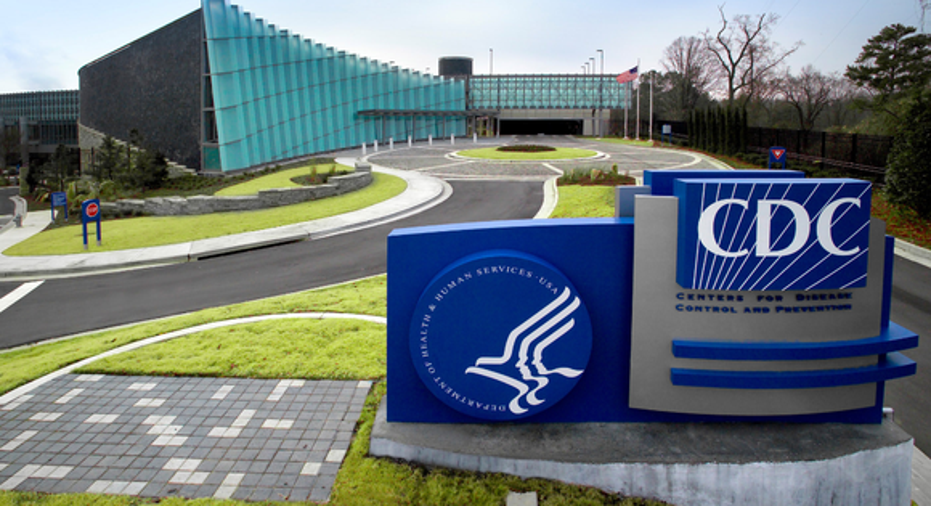The Zika Virus Is Spreading -- What Is Being Done to Stop It?

Source: CENTERS FOR DISEASE CONTROL AND PREVENTION.
Reports from the Centers for Disease Control and Prevention (CDC) earlier this week said that 14 Americans may have contracted the Zika virus by having sexual contact with infected partners, potentially increasing the total number of Americans with the Zika virus to nearly 100.
Although cases of the Zika virus have historically been limited to tropical regions, an increase of cases in the U.S. suggests that the virus could increasingly pose a threat elsewhere. In response, the World Health Organization and the CDC are mobilizing efforts to educate people on the risks of contracting the Zika virus, and drugmakers are boosting efforts to develop a vaccine. Can these actions halt the Zika virus in its tracks? Read on to learn more about the disease and how Sanofi and Inovio Pharmaceuticals (NYSEMKT: INO) hope to tackle it.
First, a bit of backgroundThe Zika virus is transmitted by a type of mosquito -- Aedes aegypti -- that is predominately found in hot and humid climates such as Latin America and the Caribbean. The Aedes aegypti mosquito is also responsible for transmitting dengue fever, a similar illness to the Zika virus that infects approximately 400 million people annually.
In most patients, symptoms of the Zika virus include fever; joint, muscle, or eye pain; or a rash occurring within two weeks of becoming infected with it. In pregnant patients, however, the Zika virus has been associated with uncommon birth defects, including microcephaly, a condition in which the brain of a newborn is underdeveloped. In Brazil, for example, evidence of Zika virus infection has been found in 270 of 4,000 suspected cases of microcephaly.
Because of the risk the Zika virus poses to pregnant women, the World Health Organization declared a public health emergency on Feb. 1. The WHO has only made such a declaration twice before: during the H1N1 flu epidemic in 2009 and the Ebola outbreak in 2014. On Jan. 15, the CDC issued a precautionary warning to people traveling to 14 countries, and more countries have since been added to the list.
SOURCE: INOVIO PHARMACEUTICALS.
In search of a vaccineCurrently, there's no vaccine for the Zika virus, and the availability of inexpensive and accurate tests is somewhat limited.
However, the Obama administration said on Feb. 8 that it's seeking $1.8 billion in funds to combat the Zika virus, including $200 million that will go toward vaccine and diagnostic research, potentially including vaccine programs under way at Sanofi and Inovio Pharmaceuticals.
Sanofi, a global pharmaceutical powerhouse best known for its megablockbuster diabetes drug Lantus, generates nearly $5 billion in annual sales from vaccines, making it one of the biggest vaccine manufacturers on the planet.
While most of Sanofi's vaccine revenue comes from vaccines used to prevent the flu, polio, and meningitis, the company is in the process of rolling out a dengue virus vaccine. Since Sanofi has considerable experience developing vaccines, it's possible that lessons learned by Sanofi during its 20-year development of a dengue vaccine could accelerate its efforts to create a Zika vaccine.
Inovio Pharmaceuticals may not have Sanofi's experience and deep pockets, but it does have a unique DNA vaccine approach that may allow it to craft a Zika vaccine too. Inovio Pharmaceuticals' approach involves crafting a synthetic DNA fragment that can be inserted into a patient's body to produce an immune system response that may destroy the virus.
Currently, Inovio Pharmaceuticals doesn't have any products on the market yet, but its pipeline includes vaccines targeting cancer, flu, and Ebola, andon Feb. 17, Inovio Pharmaceuticals reported that its Zika vaccine successfully prompted an immune response in mice. The company is planning additional studies in primates, and if those studies also succeed, then it will advance the vaccine into human trials, possibly by the end of this year.
Looking forwardThe Zika virus will probably continue to spread within regions where dengue also occurs, but colder climates, including much of the continental United States, should remain somewhat insulated against the risk. Currently, cases of the Zika virus reported by the CDC in America have been in patients who have traveled to places where the Aedes aegypti mosquitoes live or as a result of sexual contact with people who havfe traveled to those regions.
Although research by Sanofi, Inovio Pharmaceuticals, and others could produce a Zika vaccine, it can take years to develop and conduct the clinical trials necessary to prove these vaccines are effective and safe enough for widespread use. Because of that, precaution, especially among those who are pregnant or considering having children, remains the best weapon for combating the spread of the Zika virus.
The article The Zika Virus Is Spreading -- What Is Being Done to Stop It? originally appeared on Fool.com.
Todd Campbell has no position in any stocks mentioned. Todd owns E.B. Capital Markets, LLC. E.B. Capital's clients may have positions in the companies mentioned. The Motley Fool has no position in any of the stocks mentioned. Try any of our Foolish newsletter services free for 30 days. We Fools may not all hold the same opinions, but we all believe that considering a diverse range of insights makes us better investors. The Motley Fool has a disclosure policy.
Copyright 1995 - 2016 The Motley Fool, LLC. All rights reserved. The Motley Fool has a disclosure policy.



















